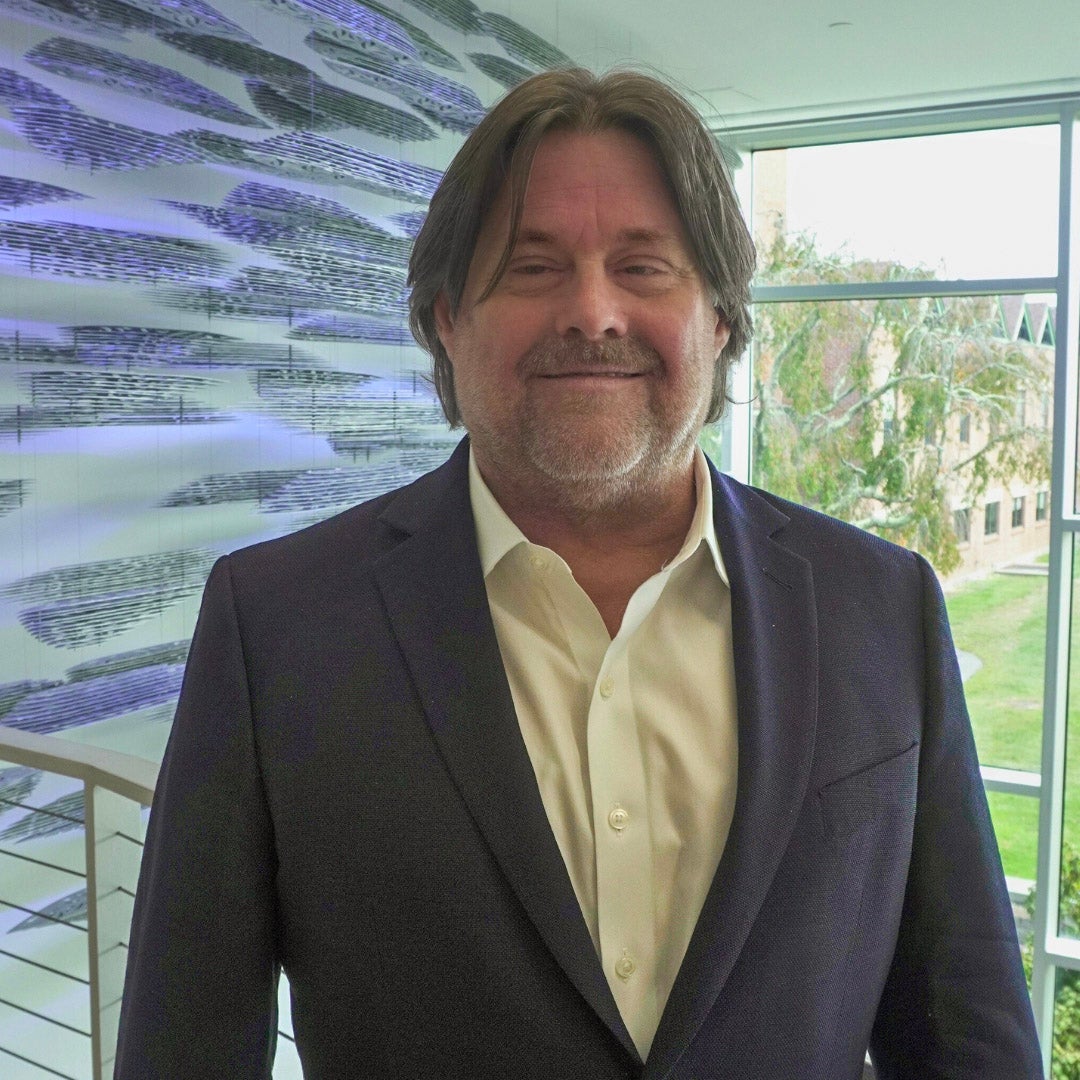Less than 0.1% of the association’s members are selected as fellows each year
September 29, 2025
Steven D’Hondt, professor and interim dean of URI GSO, was elected an American Geophysical Union (AGU) Fellow.
AGU is the world’s largest Earth and space science association. Since the inception of the AGU’s Fellow program in 1962, less than 0.1% of AGU’s members have been selected as Fellows each year. D’Hondt is one of 52 individuals in the 2025 Class of Fellows.
“It’s wonderful to be recognized by the American Geophysical Union in this way,” said D’Hondt. “I’m grateful for the honor, but I’m even more grateful for the many collaborators with whom I’ve worked who made it possible for me to be considered for this prestigious honor.”
D’Hondt considers himself an oceanographer whose primary expertise is in the areas of biogeochemistry and geobiology. His research often occurs at the intersection of chemistry, biology, and geology.
D’Hondt has authored or co-authored more than 100 peer-reviewed journal publications and about 20 book chapters and scientific perspectives. He has led multiple oceanographic expeditions, with teams ranging from 22 to 55 scientists continuously at sea for up to 68 days.
One of D’Hondt’s proudest accomplishments was a study he conducted in 2002 with fellow URI oceanography researchers Scott Rutherford and Art Spivack.
“We demonstrated that per-cell respiration rates are orders of magnitude lower in subseafloor sediment than in the surface world,” said D’Hondt. Their findings were published in the peer-reviewed journal Science.
Another highlight of D’Hondt’s career was the work he and his collaborators contributed through Ocean Drilling Program Leg 201, the first deep-sea drilling expedition focused primarily on life beneath the seafloor.
“The project demonstrated that diverse communities and diverse energy-yielding activities occur in deeply buried marine sediment,” said D’Hondt.
In 2012, a URI research team that included D’Hondt demonstrated that there are globally as many microbial cells in marine sediment as there are in seawater and soil.
“The study synthesized data from our many expeditions to understand the distribution of life in marine sediment,” stated D’Hondt.
In URI’s Geobiology Field Laboratory, D’Hondt and his students examine fundamental topics in geobiology, with a particular focus on subseafloor life. They analyze the composition and diversity of microbial communities in seawater and sediment, and they study the metabolic activities of subseafloor communities, the structure of subseafloor ecosystems, and the processes that nourish subseafloor life.
D’Hondt’s research group has conducted expeditions all over the world, including the Eastern Indian Ocean, the North Atlantic, the Northwest Atlantic, the Bering Sea, the equatorial Pacific, the South Pacific Gyre, Japan’s Shimokita Peninsula, and the Nankai Through off Japan’s southern coast.
The AGU will recognize D’Hondt and the other 2025 Fellows during the AGU25 conference in New Orleans, Louisiana from Dec. 15-19.
AGU Fellows are recognized for their scientific eminence, demonstrated through breakthroughs, discoveries or innovations that advance the Earth and space sciences. Fellows act as external experts, advising government agencies and other organizations outside the sciences upon request.

